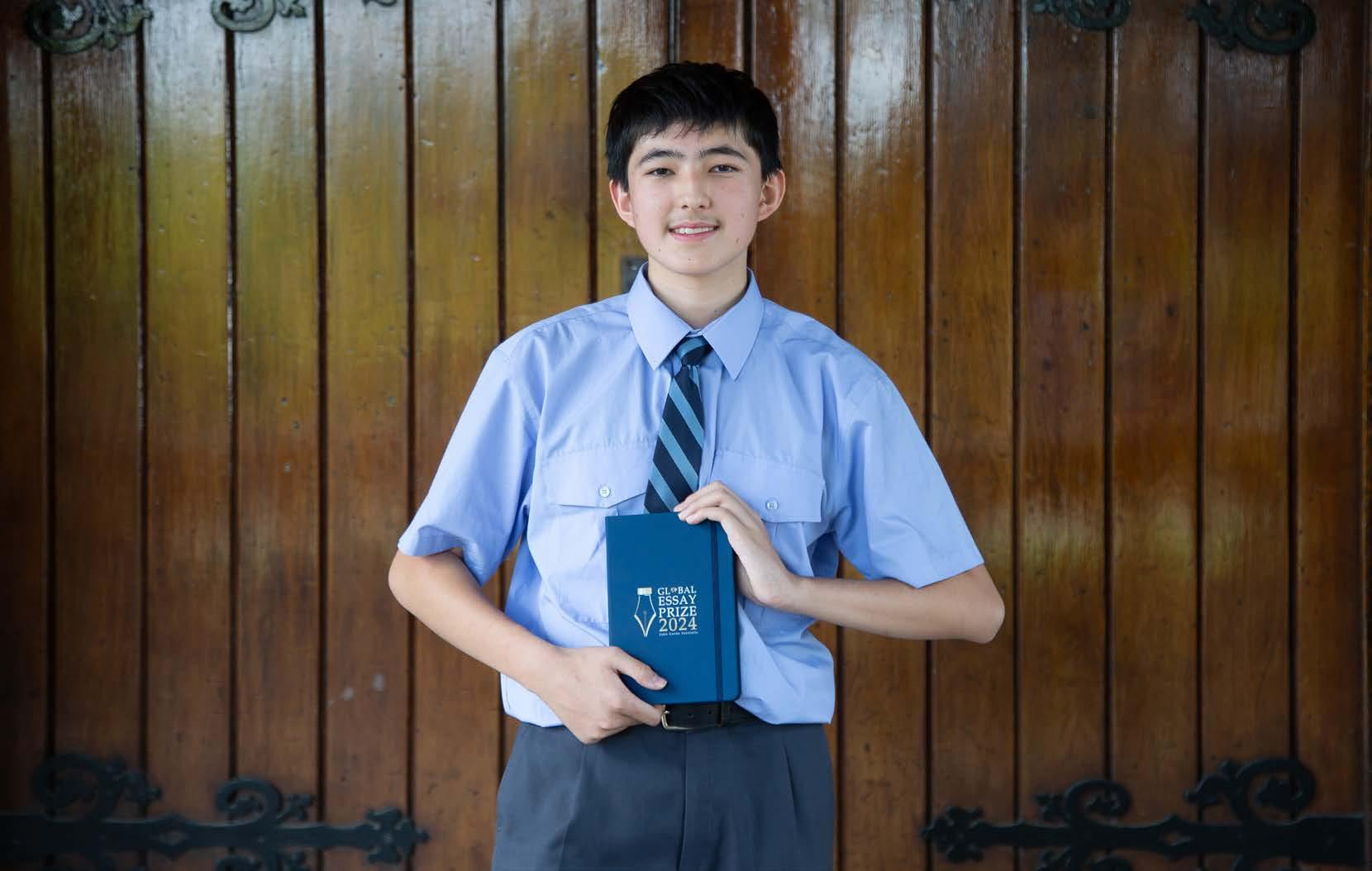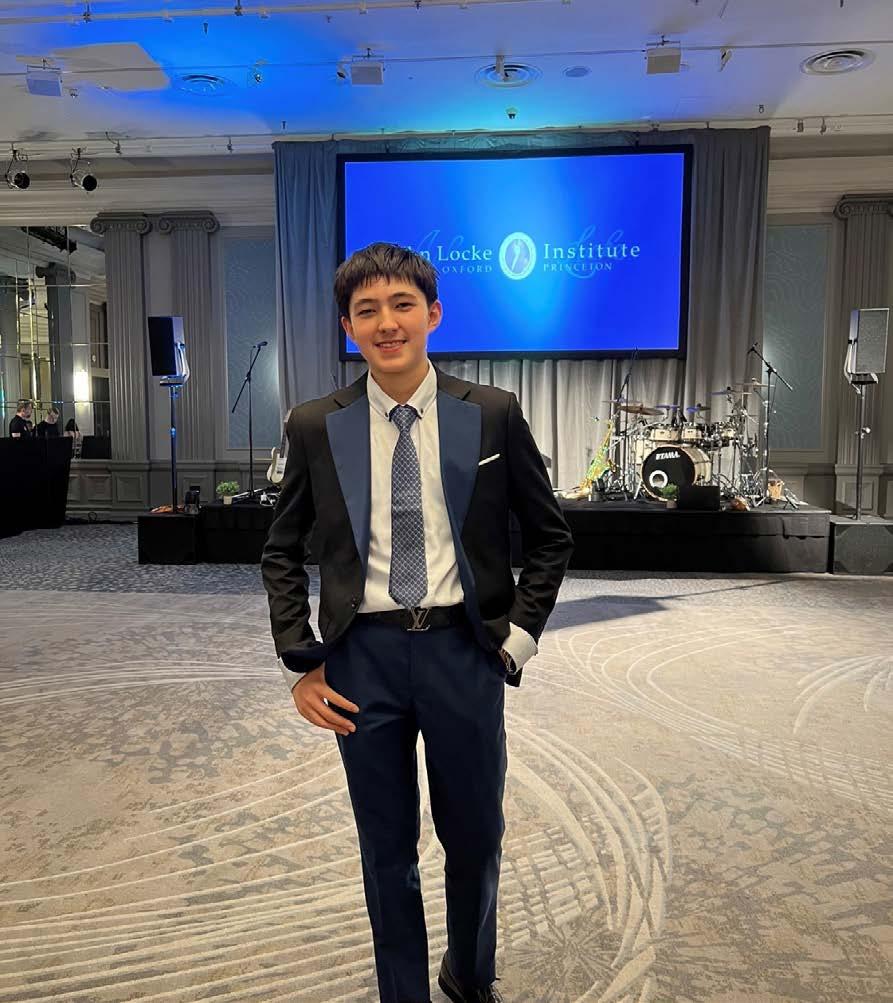
3 minute read
Dining with Scholars
Dining with Scholars
Written by Kloe Phelan
In Term 3 2024, Year 9 student Alex Du was elated to discover his essay had been shortlisted for the John Locke Institute’s (JLI) illustrious Global Essay Prize in the ‘Junior’ category. The Global Essay Prize is considered to be the world’s most prestigious essay competition.
Each year, students choose from a topical suite of questions which are designed to transform good students into great writers and encourage them to delve into a world extending far beyond the curriculum.

The prompts spanned complex debates in philosophy, politics, economics, history, law, psychology and theology. They are simple, but vast in opportunity, and require a depth of knowledge articulated through persuasive, independent thought, critical analysis and clear reasoning.
The essays are highly competitive and scrupulously examined by some of the world’s leading scholars from the likes of Oxford and Princeton Universities.
“I think the thing that made my essay stand out from the rest was taking a more historical approach,” Alex said.
Of the tens of thousands of submissions from more than 150 countries around the world, Alex was shortlisted and became one of only 250 students invited to attend the Annual Awards Dinner in the United Kingdom.
In his reflective and forward-thinking hypothesis, Alex explored the possibility of advanced technology rendering humans unemployable.
Ultimately, the goal is to harness the potential of technology to improve quality of life, reduce inequality, and create a future where everyone can thrive.
Concluding that it will never quite eventuate, he suggested that it will instead enhance capabilities across many sectors.
“Each epoch marked by a significant technological innovation has brought about fears of widespread unemployment, yet history has demonstrated that such fears, while not unfounded, often fail to account for the adaptive capabilities of human societies.
“As we sit on the cusp of what has been coined the Fourth Industrial Revolution, this issue only grows ever more prevalent.” (Excerpt from Alex’s essay – untitled).

Taking an optimistic and globally minded approach, Alex’s essay emphasised the benefits of a universal basic income. He advocated for more advanced technological learning opportunities in schools and saw the advantages of government-funded lifelong learning initiatives in creating a progressive and prepared society.
Most importantly, he implored that human wellbeing must be prioritised by leaders as technology becomes increasingly ubiquitous.
“Ultimately, the goal is to harness the potential of technology to improve quality of life, reduce inequality, and create a future where everyone can thrive.” (Excerpt from Alex’s essay – untitled).
Alex reflects fondly on the experience of dining with scholars and peers from around the world.
“We were in the Great Room at the JW Marriott, Grosvener House London - just outside of Kensington Palace... It felt, quite grand.”
Speeches by distinguished guests compelled the students to socialise and theorise across tables and in break-out rooms all evening, making the event all the more memorable.
“There were many notable figures such as Liz Truss, Lord Hannan [House of Lords], a few renowned neuroscientists and political science figures, and a fair few Oxford and Cambridge professors,” he reminisced.
On realising his achievement, Alex said, “I didn’t really think I would have got such a good result, but I’m pleased with what I did... I don’t think everyone gets a chance to say they shook hands with the UK Prime Minister.”
Alex is eager to pursue new opportunities in the future with his newly invigorated thirst for knowledge.










